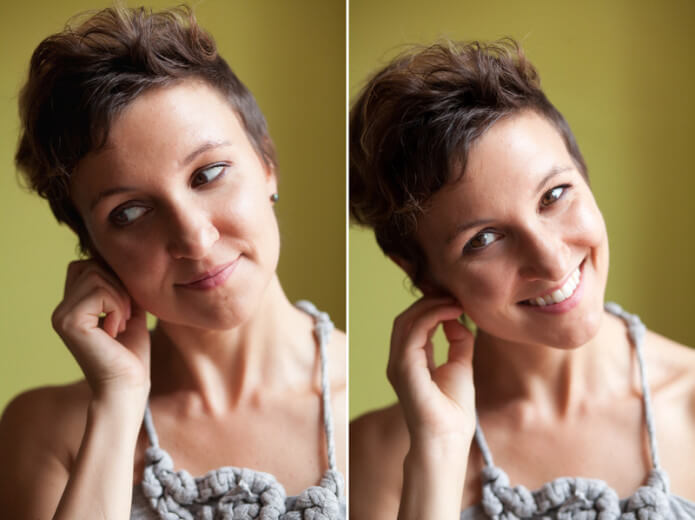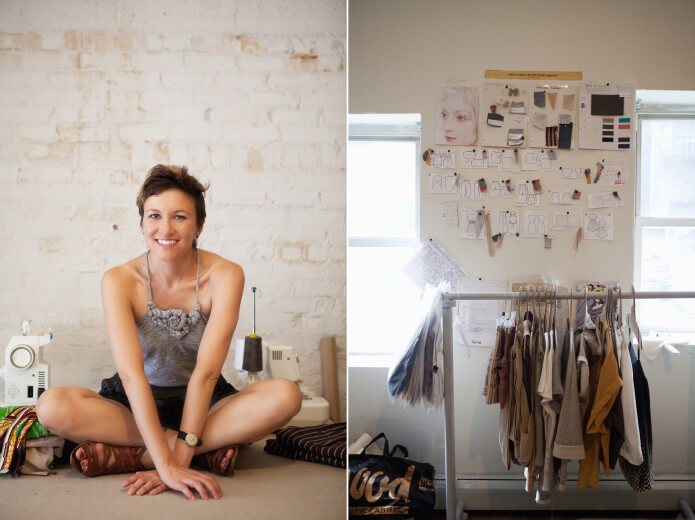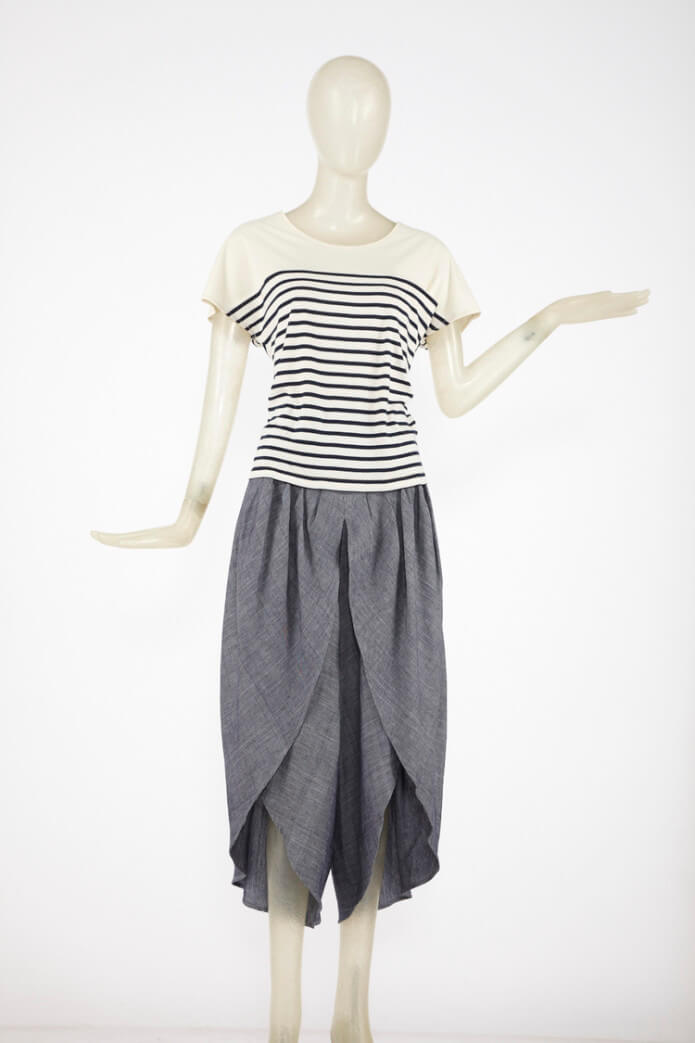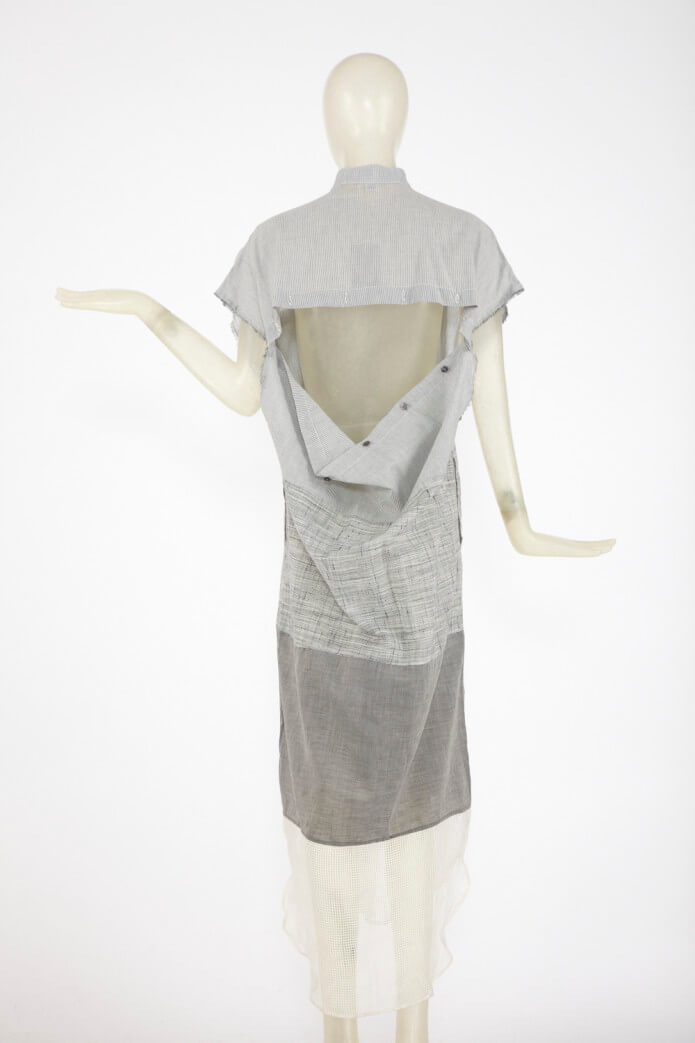“I firmly believe good design and sustainability are intrinsically linked to one another.” -Tara St James
Following your instincts is never easy, but by-gosh fruitful. Leading fashion designer, Tara St. James is following hers, and as a result is pioneering the Anti-Fashion Calendar. Her designs are sharp, utilitarian and thoughtfully effortless. Sustainability + conscious living are engrained in her lifestyle, and subsequently her brand.
Study NY‘s Anti-Fashion Calender is based on the idea of creating what you need. Tara creates a capsule collection of three-four styles each month, every month, for the entire year–rather than the traditional fashion calender producing an entire collection a year in advance. The new approach allows Tara to greater freedom to create a complete wardrobe at the end of the year, and based capsule collections on themes such as zero waste or hand knits produced by a women’s co-operative in Peru. The stores love it because the new model offers continuous monthly stream of styles. And her manufactures are thrilled for a steady stream of work, rather than piling a heavy workload twice a year.
“Study started, as most fashion brands do, by joining the traditional fashion calendar. Designing one year or more in advance, showing the collection to buyers 6 months before the season, shipping Spring styles when it was still snowing outside, and Fall styles when everyone just wanted popsicles and sprinklers. The calendar never made sense to me, and while I continually questioned it, I never thought I could challenge it.”
We recently got the opportunity to catch up with Tara and talk about her label, process and where she sources her materials.

Fashion is always changing, and so are it’s definitions. What does fashion mean to you?
Fashion always has been and always will be (to me) a form of expression. It can be escapist, liberating, confining, controversial or redeeming like most other artforms.
What was the a-ha moment you knew you wanted to become a sustainable fashion designer?
Sustainability is very important in my personal life, I limit my consumption habits, recycle, reuse and repair instead of replace whenever possible. As I developed confidence and gained more responsibility in my work life, my production and sourcing decisions naturally started taking a sustainable direction. Now I don’t see any other options, I firmly believe good design and sustainability are intrinsically linked to one another.
What would you advise to aspiring fashion designers?
Be nice to people, you never know who will end up helping you along the way. And don’t be too shy to ask questions and ask for help. It’s the only way to get answers.

In your opinion, what is more important the process or the product?
I believe they’re equally important. The process is the part that is most interesting to me, and what I take most pleasure in, however the product must be representative of that process and is the outward facing representation of my work, and therefore must reflect the esthetic of the emotion I feel during the process. While the process may be more important to me, I understand the product is all the customer will see and it needs to stand on its own at that point.
What do you believe makes a quality garment?
Thoughtfulness. Creating the garment without money as the key motivating factor for its creation. Once ethics are involved in the making of a garment, most often the garment acquires a quality not found in most fast fashion pieces. Mostly.
Describe your aesthetic in three words.
Textured
Casual
Unpredictable

Where do you source your materials from?
I’m glad you asked this, I’m creating a sourcing section on my website to guide other designers to resources (both textile and manufacturing) that I have used and trust. It won’t be an all-encompassing resource, since it will be limited to the sources I use, but it will be a step towards transparency on my part. In the meantime I source my fabrics from Pickering, Kendor, Indigo Handloom and Zentex, to name a few.
What are your favorite materials to work with? and why?
My degree is in menswear tailoring so I tend to make very masculine choices with my fabrications by default: pinstripe poplins, herringbone, tweeds, plaids, etc… I love the juxtaposition of masculine and feminine and the blurred line that can be achieved with drape and pattern.
Do you have any upcoming projects you can tell us about?
I want to include more collaboration in the Study brand, whether it’s for the main product range, an off-shoot or for private label development with my retailers, I love the idea of product development on a broader scale.

Read more about Tara’s Anti-Fashion Calender and shop her styles.
